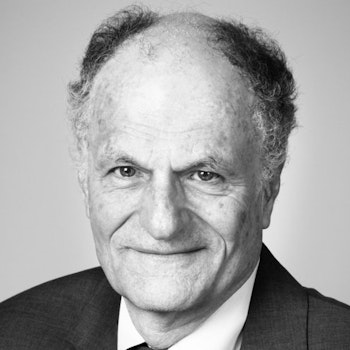The standard theory of decision making under uncertainty advises the decision maker to form a statistical model linking outcomes to decisions and then to choose the optimal distribution of outcomes. This assumes that the decision maker trusts the model completely. But what should a decision maker do if the model cannot be trusted?
Lars Hansen and Thomas Sargent, two leading macroeconomists, push the field forward as they set about answering this question. They adapt robust control techniques and apply them to economics. By using this theory to let decision makers acknowledge misspecification in economic modeling, the authors develop applications to a variety of problems in dynamic macroeconomics.
Technical, rigorous, and self-contained, this book will be useful for macroeconomists who seek to improve the robustness of decision-making processes.
Awards and Recognition
- Lars Peter Hansen, Co-Winner of the 2013 Nobel Prize in Economics
- Thomas J. Sargent, Winner of the 2011 Nobel Prize in Economics
Lars Peter Hansen is the Homer J. Livingston Distinguished Service Professor in the Department of Economics at the University of Chicago. Thomas J. Sargent is professor of economics at New York University and senior fellow at the Hoover Institution. He is the author of The Conquest of American Inflation and the coauthor of The Big Problem of Small Change (both Princeton).
"The book is self-contained and rigorous and may be interesting not only for macroeconomists who seek to improve the robustness of decision making process but also for control engineers interested in different applications of their professional abilities."鈥擜. Swierniak, Zentralblatt MATH
"Best policies can be evaluated, in theory at least, given an economy. But macroeconomists have only model economies at their disposal and necessarily these economies are abstractions. A concern then is that the model economy used to evaluate policy will provide poor guidance in practice. This leads to the search for policy that performs well for a broad class of economies. This is what robust control theory is all about. In this book, Hansen and Sargent greatly extend robust control theory to make it useful in the macro policy setting. This is a major contribution to macroeconomics."鈥擡dward C. Prescott, Nobel Prize-winning economist
"The pathbreaking work of Hansen and Sargent extends macroeconomic theory beyond the Bayesian paradigm. They retain the analytical power of the classical mathematical models while adding to them the subtleties of an uncertain world. Using tools from robust control theory, they present a model in which an individual's probabilistic belief is subject to noise, or to uncertainty, and redo much of macroeconomic theory under this assumption."鈥擨tzhak Gilboa, Tel Aviv University
"Hansen and Sargent were among the cadre of macroeconomists who challenged conventional (Keynesian) wisdom, and they are at it again, in a book that sparkles with ideas and analysis of fundamental problems in dynamic macroeconomics. The specific results reported here are, of course, interesting but this book is so much more: for young and ambitious economic theorists, this book is like the California gold fields in 1848."鈥擠avid Kreps, Stanford University



